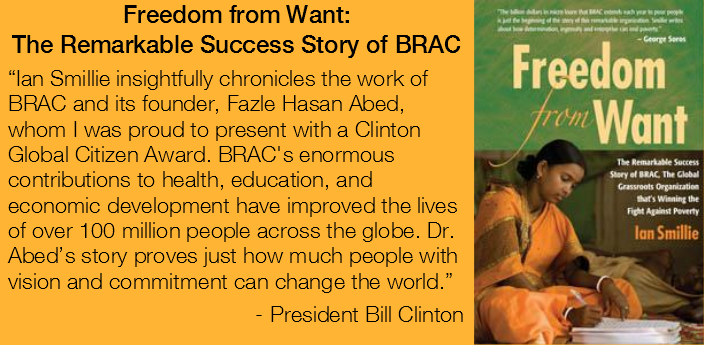
BRAC
Finding the freedom through arguments
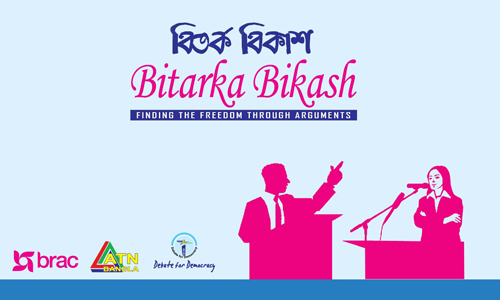
On September 12, 2015 Saturday at 11.00 am, A national debate competition is going to be held in Bangla Academy Auditorium, Dhaka. Bitarka Bikash Grand Final, Debate competition is organised by BRAC, ATN Bangla and Debate for Democracy. ATN Bangla will telecast it live.
The main objective of this programme is to provide the students of rural secondary schools an opportunity to progress their presentation skill, communication skill and speaking ability as well as improve their logical thinking and self confidence.
BRAC started its involvement in the field of secondary education in 2001 by PACE (Post Primary basic and Continuing Education component of BRAC education programme) as a supplement to the government‘s effort in order to meet the target plan for the secondary school students. At first, initiative was taken for training the subject-based (Math, Science, and English) teachers. Later, it was observed that some major barriers, i.e., only training for the teachers is not sufficient to ensure an effective learning environment and students’ attendance, participation in classroom and internal examinations were not satisfactory. Students felt shy to ask questions in classroom and consult teachers for their problems and students had limited scope in school to engage themselves in co-curricular activities and in the classroom.
To address all these problems and to create a healthier learning environment in rural secondary schools, BRAC introduced Students’ Peer Mentoring Programme in 2006. Peer Mentoring programme aims to create and develop the quality of self-esteem, perceptiveness, self-discipline, attentiveness, partnering, sharing, leadership, imagination, and creativity among the students with a view to bring positive changes in the society. In this programme, some academically advanced and enthusiastic students are provided with proper advice, support and training to become Mentors. One of the core objectives of Peer Mentoring is to promote co-curricular activities among the students. In light of this objective, Students’ Mentoring has been arranging debate competition for Secondary Schools students and teachers since 2006.
Executive Management
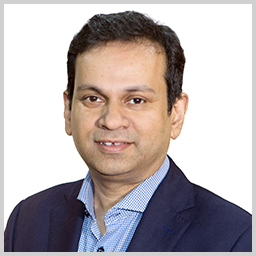
Asif Saleh
Executive Director
BRAC Bangladesh
Asif Saleh is the executive director of BRAC Bangladesh. He brings with him a diverse multi-sectoral experience in senior leadership roles in private, public, and non-government sectors, with a proven track record of effectively managing interfaces of development programming, operational and financial sustainability, and building effective partnerships, both within and outside BRAC.
Prior to joining BRAC, Mr Saleh worked as a policy specialist for the Access to Information (A2i) Programme at the Prime Minister’s Office in Bangladesh. As part of the Government’s Digital Bangladesh initiative, he led the policy effort to expand affordable broadband connectivity across Bangladesh and devised the Government's m-governance strategy. He spent 12 years in Goldman Sachs in different fin-tech roles in New York and London ending his term there as an Executive Director. He has also worked in Glaxo Wellcome, IBM and Nortel.
Mr. Saleh is a non-resident fellow at the Center for Global Development in Washington, D.C. He is also an active member in a range of international networks and alliances advocating inclusive achievement of the Sustainable Development Goals. He is a member of the Millions Learning International Advisory Group, Brookings Institute, a member of the advisory group of South Africa-based Innovation Edge, an institution promoting early childhood development. He is a member of the global board for Generation Unlimited, a global body of UNICEF promoting youth skills, and also a member of the global governing council of Water Resource Group 2030.
Mr Saleh chairs BRAC IT Services Limited, co-chairs BRAC Net, and is on the Board of BRAC Bank, bKash, and edotco Bangladesh Ltd. He also chairs the Institute of Informatics and Development.
He was recognised for his work by Asia Society’s Asia 21 programme in 2008, the Bangladeshi American Foundation in 2007, and was selected as an Asia 21 Fellow in 2012. He was selected as a Young Global Leader by the World Economic Forum in 2013.
Mr Saleh holds a Bachelor's degree in computer science and an MBA in management and marketing from the Stern School of Business, New York University.
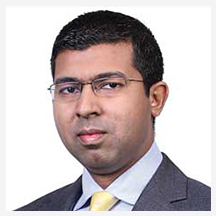
Shameran Abed
Executive Director
BRAC International
Shameran Abed is the Executive Director of BRAC International.
Shameran joined BRAC Bangladesh in 2009 and BRAC International in 2012, and has been instrumental in bringing BRAC’s flagship programmes of microfinance and ultra-poor graduation to global scale. Under his leadership, BRAC International’s microfinance portfolio has seen impressive growth and a renewed focus on client impact. Since 2016, Shameran has also led BRAC’s ultra-poor graduation work and played an instrumental role in setting up the UPGI to spearhead global advocacy and provide technical assistance to governments and other organisations.
Shameran has significant Board experience on several non-profit and corporate entities, chairing the board of bKash, BRAC Bank’s mobile financial services subsidiary and one of the world’s largest mobile money providers, and serving on the boards of several institutions including BRAC Bank, BRAC Uganda Bank, and the Global Alliance for Banking on Values (GABV).
Shameran is also chairman of the Microfinance Network and is a member of the Steering Committee of the Partnership for Economic Inclusion at the World Bank. Shameran holds a Bachelor’s Degree in Economics from Hamilton College in the United States and is a qualified Barrister in the UK.

Tamara Hasan Abed
Managing Director
Enterprises, BRAC
Tamara Hasan Abed is the Managing Director of BRAC Enterprises heading BRAC's ten social enterprises including Aarong, BRAC Dairy and BRAC Seed and Agro.
Ms Abed brings with her extensive experience in investment banking, entrepreneurship and social enterprise, with a career spanning two and a half decades. She is passionate about driving value-based business models, operating at the intersection of social good, sustainable business and inclusive growth.
Ms Abed began her career in investment banking in 1995, at Peregrine Capital Ltd, a Hong Kong based investment bank in Dhaka. Later she moved to New York and worked for Goldman Sachs in Mergers and Strategic Advisory.
She joined Aarong as the general manager for design and product development in 2002. She later took charge of its export division and established the marketing department. In 2005, she was promoted as the head of Aarong and Ayesha Abed Foundation. Under her leadership, Aarong has gone from strength to strength, celebrating 40 years in 2018 as Bangladesh’s most popular lifestyle retail chain. She has been instrumental in driving the expansion of Aarong to 22 national outlets, multiple brands, e-commerce and digital platforms.
In 2006, Ms Abed was also given charge of BRAC Dairy, and since then has built a strong team to take the dairy business to new heights. BRAC Dairy is currently the second highest dairy processor in Bangladesh with a diverse portfolio of products. In 2014, she took charge of all BRAC’s social enterprises. Ms Abed served on the board of directors of BRAC Bank for eight years from 2008 to 2016. She currently serves on the boards of IPDC Finance, BRAC EPL Investments, BRAC EPL Stock Brokerage and edotco Bangladesh.
Ms Abed was elected as Chairperson of the BRAC University Board of Trustees in 2019, of which she was a member from January 2011. She chaired the board finance committee from December 2016 to June 2019, and was a member of the BU Syndicate from March 2011 to June 2019. She currently chairs the Board of BRAC Services Limited and is the executive trustee of Ayesha Abed Foundation. She also chairs the board of BRAC Tea Estates since August 2019.
Ms Abed has represented Bangladesh globally and was honoured by the World Economic Forum as a 'Young Global Leader' in 2010. Ms Abed is an Asia 21 Young Leader. She received the Outstanding Women Leadership Award from the World Women Leadership Congress in 2014.
Ms Abed has an MBA in Finance from Columbia Business School, Columbia University, New York. She completed her BSC in Economics from the London School of Economics. In 2014, Ms Abed completed an executive course on Transformational Leadership at Oxford University’s Said Business School.
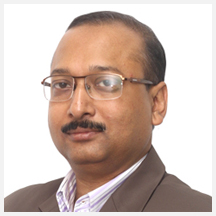
Tushar Bhowmik
Chief Financial Officer
BRAC
Tushar Bhowmik, Chief Financial Officer of BRAC, is an accomplished finance professional with over 20 years of progressive experience in Strategic Leadership, Financial Administration, Corporate Governance, Risk Management and Internal Control in the corporate arena of Bangladesh and UK. Mr Tushar Bhowmik is a member of Board Executive Committee of IPDC, one of the oldest financial institution of the country. He is also a member of the Board of Directors for IPDC Finance Limited, edotco (BD) Co. Limited., BRAC Services Limited and BRAC Industries Limited.
Prior to joining BRAC, Mr Bhowmik worked as the Regional Finance Director of Avery Dennison, South Asia. He also served Functional Head role in reputed local and multinational companies, like Zuellig Pharma Bangladesh, Rahimafrooz Storage Power Division, Transcom Group and Reckittbenckiser, UK and Bangladesh.
Mr Bhowmik is a postgraduate in Accounting from Dhaka University and a fellow member of the Institute of Chartered Accountants of Bangladesh (ICAB).
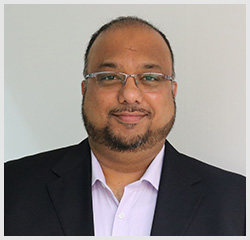
Syed Abdul Muntakim
Chief Finance and Risk Officer
BRAC International
Mr Muntakim is a Chartered Management Accountant with over 18 years of experience in the FMCG commercial and corporate financial management.
Prior to joining BRAC, he was a Commercial Finance Controller in the Global Operations function of British American Tobacco (BAT) plc. His previous roles include Senior Commercial Audit Manager, Regional Finance Manager, Europe Region and Management Accountant in BAT London, UK. He also worked as the Corporate Analysis Manager and Leaf Finance Manager for BAT in Bangladesh.
Mr Muntakim is a member (ACMA) of the Chartered Institute of Management Accountants (CIMA), UK and Chartered Global Management Accountant (CGMA) of the Association of International Certified Public Accountants, a joint accounting association of AICPA, USA, and CIMA in the UK.
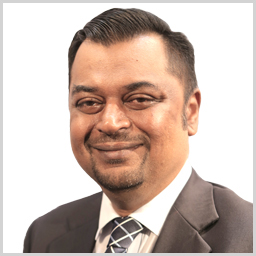
KAM Morshed
Senior Director
Advocacy for Social Change,
Partnership Strengthening Unit,
Social Innovation Lab,
Technology and
Monitoring, Evaluation, Accountability and Learning
BRAC
KAM Morshed leads BRAC’s advocacy, partnership, social innovation lab, technology, and monitoring, evaluation, accountability and learning teams. He facilitates BRAC’s policy engagements and stimulates technology adaptation to help reimagine BRAC’s internal processes and programme interventions. He is also responsible for fostering partnership between BRAC and the government to help expand BRAC’s impact.
Before joining BRAC in October 2015, Mr Morshed led Bangladesh’s Policy, Innovation and Communication teams at UNDP for over 10 years. In that role, he managed UNDP-government partnerships and supervised various programme interventions in the areas of ICT4D, MDGs, aid effectiveness, trade, and south-south cooperation.
Mr Morshed has contributed, in various capacities, in the formulation of a number of policies, such as the e-Payment Policy (2005), the Bangladesh ICT Policy (2005, 2010 and 2015), the PPP Policy (2010), Bangladesh Social Safety Net Policy (2015), 6th Five Year Plan (2011-2016), and the 7th Five Year Plan (2016-2020).
Mr Morshed sponsored four successful start-ups, including the country’s first GIS Data Management/BPO company (1993), the first chain supermarket (2001), and the first Business Process Reengineering Consulting House (1999).
He joined his alma mater as a teacher in 1998, teaching MIS and public/development finance. As a professor and specialist, he led and participated in several notable process reengineering projects. He has published in peer-reviewed journals, newspapers and periodicals.
Mr Morshed received both his master’s and bachelor’s degrees with honours from the Department of Finance and Banking of the University of Dhaka. His interests include innovation, behavioural insights, future casting, and social enterprises.
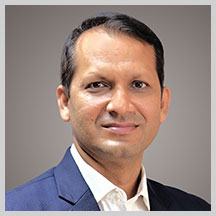
Mohammad Anisur Rahman
Senior Director
Enterprises, BRAC
Mohammad Anisur Rahman leads social enterprises of BRAC in livestock, agriculture, aquaculture, horticulture and other sectors. He serves as a member of the Board of Directors for Delta Brac Housing Finance Corporation Ltd. (DBH) - the pioneer, largest and specialist Housing Finance Institution in the country. He is also member of the Board of Directors for BRAC Services Limited, BRAC Industries Limited, and Bangladesh Netting Factory Limited.
Mr Rahman has over 15 years of progressive leadership experience in managing multiple businesses with forward and backward linkages in FMCG, Food and Agro Processing. He strives to create an enabling and cohesive environment where people can sell their ideas, get empowered and drive changes. Prior to joining BRAC in October 2016, he was working as chief operating officer at PRAN, one of the largest agro-processors in Bangladesh. He also worked for other reputed organisations - Rahimafrooz, AC Nielsen Bangladesh, United Nations and Bangladesh University of Professionals.
Mr Rahman brings with him a wealth of leadership experience, especially in the areas of marketing, sales, customer care, supply chain, human resources, production, and value chain integration. He specialises in orchestrating large projects, start-ups, turnarounds and growth ventures. He is driven to provide strategic directions and improve the bottom line, while ensuring staff compliance to business policies and procedures.
He holds an MBA in Marketing from University of Dhaka and obtained special training from Indian Institute of Management, Kolkata.
Mr Rahman has special interests in travelling, movies and golfing.
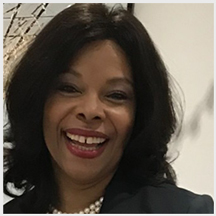
Nelly Enwerem-Bromson
Senior Director
Global Resource Mobilisation and Partnership(GRP)
BRAC and BRAC International
Nelly Enwerem-Bromson is the Senior Director for Global Resource Mobilisation and Partnership(GRP), BRAC and BRAC International.
Ms Enwerem-Bromson is an accomplished global development leader with more than 20 years of progressive experience in fundraising, developing innovative partnerships, leading change, scaling-up projects, strategic policy development, and implementation, and delivering on the UN Sustainable Development Goals. She has years of experience in successfully managing international development programmes and mentoring high-performing teams to tackle development priorities in low and lower-middle-income countries.
Ms Enwerem-Bromson has a longstanding professional and personal commitment to human development, based on gender equality, social inclusion, protection of human rights, and support for vulnerable groups. She has served on several boards, including the Portuguese inter-ministerial panels for the Rights of Women, Ethnic Minorities, and migrant populations under Prime Minister Guterres.
Before joining BRAC, Ms Enwerem-Bromson worked at the United Nations for 18 years, 12 of which at the senior level. Ms Enwerem-Bromson served as a Director of the Technical Cooperation Department of the IAEA, heading the Programme of Action for Cancer Therapy (PACT). Ms Enwerem-Bromson also worked for 12 years at the World Health Organization. She was also the Adviser to the President, the Attorney-General and the Minister of State Reform and Public Administration of Portugal.
Ms Enwerem-Bromson holds a Bachelor of Arts Degrees in Political Science and African Studies from Wellesley College and a Master of Arts Degree from the Fletcher School of Law and Diplomacy, both in the United States.
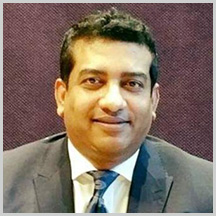
Arinjoy Dhar
Senior Director
Microfinance, BRAC
Arinjoy Dhar is the Senior Director for Microfinance at BRAC.
Mr Dhar has diverse and extensive experience in strategy implementation, large-scale transformation, digital innovation and adaptation, process improvement initiatives, and customer experience improvement initiatives. He has a proven record of developing strong and successful teams and is passionate about talent development and frugal innovation.
Before joining BRAC, Mr Dhar worked for HSBC Hong Kong Commercial Banking as the Head of Operational Excellence. Prior to this, he worked as the COO Commercial Banking for Pearl River Delta at HSBC China. He held strategic management positions and worked for Commercial Banking teams in Hong Kong, Canada, China, and Bangladesh. He also worked for Asia Pacific Retail Banking, Global Trade and Receivable Finance, Global Insurance, Financial Control, Banking Operations, Credit Risk, Learning and Development functions. He did a short time assignment in Vietnam as Country COO and worked on initiatives in Indonesia and Thailand and attended workshops in Mexico, the UK, Canada, and India.
Mr Dhar holds a Master's Degree in Leadership Practice and Responsibility from Lancaster University and is also a Fellow Member of CIMA and CPA (Australia). He attended advanced management programmes at McGill University, the University of Cambridge, and Shanghai Jiao Tong University.
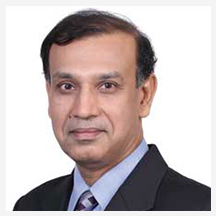
Dr Md Akramul Islam
Senior Director
Communicable Diseases,
Water, Sanitation and Hygiene (WASH),
Integrated Development, and
Humanitarian Crisis Management
BRAC
Dr Md Akramul Islam is the Senior Director of communicable diseases, water, sanitation and hygiene (WASH), integrated development, and humanitarian crisis management programme (HCMP) at BRAC. He is also an adjunct professor at James P Grant School of Public Health at BRAC University.
Dr Islam completed his master’s in primary health care management at Mahidol University of Thailand, and PhD in international community health at University of Tokyo, Japan. He joined BRAC in 1993 and has served in various capacities since then.
Dr Islam has contributed over 40 articles in international peer-reviewed journals and is a co-author of Making Tuberculosis History: Community-based Solution for Millions. He also wrote a chapter in From one to Many: Scaling Up Health Programs in Low Income Countries.
Dr Islam served as a technical consultant to the International Union against TB and Lung Disease for South East Asia Region from 2009-2010. He was a technical advisory group (STAG) member of WHO on TB in Geneva from 2013-2015. He now serves as chair for the Working Group on Evidence-based Research on Tobacco Control at the International Union against TB and Lung Disease. He is also a member of Technical Working Group of WHO SEARO.
Dr Islam was nominated for the Global Development Network award from the World Bank in 2002 for his PhD research on cost-effectiveness on TB control programme in Bangladesh. In 2008, the International Union against TB and Lung Disease South East Asian Region recognised him for his leadership in public-private partnership model on TB control.
Dr Islam was a visiting lecturer at the University of Tokyo from 2002-2005, and at Harvard University from 2008-2009.
Directors
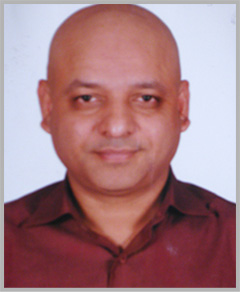
AFM Shahidur Rahman
Director
Monitoring, Evaluation, Accountability & Learning
BRAC
AFM Shahidur Rahman is the Director, Monitoring, Evaluation, Accountability & Learning at BRAC.
Prior to joining BRAC, Mr Rahman worked as the Director of Organisational Transition at CARE Bangladesh. He brings along over 18 years of experience in programme designing, leading strategic management change processes, managing multi-country, multi-lingual programme and project management. He also served Actionaid Bangladesh and Actionaid International for 16 years in various positions where he provided leadership to one of the largest food security networks present in 35 countries in five continents, working with more than a million people. He also led and managed Livelihoods Security and Risk Reduction sector of Actionaid in Bangladesh.
Mr Rahman pursued his Master’s in Business Administration (MBA) from the Institute of Business Administration, University of Dhaka, and Master’s in Economics from the same university.
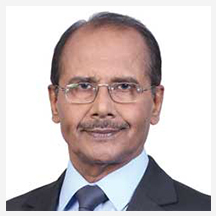
Ahmed Najmul Hussain
Director
Administration, BRAC
Road Safety, BRAC
Ahmed Najmul Hussain is the director of the administration and road safety programme. A graduate of the Police Staff College, UK, Mr Hussain has worked in a variety of law enforcement capacities. He was the superintendent of police in seven districts, as well as additional inspector general of Bangladesh Police, and commissioner of Dhaka Metropolitan Police.
He previously served as lieutenant to major in the Pakistan and Bangladesh armies. Mr Hussain’s earlier positions include chairman of the Bangladesh Road Transport Authority and team leader of the World Bank’s community road safety initiatives project.
At BRAC, Mr Hussain has been responsible for procurement, advocacy, estate, logistics, transport, security, construction, IT systems, telecommunications, road safety and the central store.
He has received various awards, including the Good Service Badge of Bangladesh Police (1994), and the Prince Michael International Road Safety Award, UK (2002).
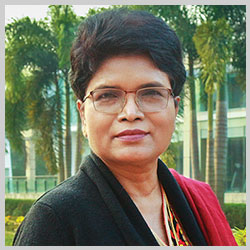
Anna Minj
Director
Programmes, BRAC International
Anna Minj is the Director of Programmes at BRAC International.
Anna Minj joined BRAC in 2009 and since then has served as a director in various programmes. She started her career with Caritas Bangladesh in 1987 where she served as the programme officer of child care and orphanage management programme. She later became the project coordinator of integrated women’s development programme in the same organisation, a position which she held for 12 years and successfully managed its three phases. She completed her masters in zoology and postgraduate level diploma in project planning and management from IDPM, Manchester University, UK.
In 2002, Ms Minj joined CARE Bangladesh where she served in various positions, eventually becoming the head of human resource and gender equity and diversity. She also served as a social worker with Camden Cross Roads, London and volunteer support to CAFOD, UK.
Ms Minj is affiliated with a number of national and international level forums and networks in the field of development, gender and indigenous peoples’ rights. She serves as the executive board member of Stromme Foundation- Norway, Vice Chair of National Coalition of Indigenous People in Bangladesh, and as chair person of Bangladesh Community Radio Association.
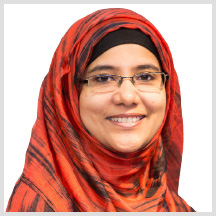
Maria Huq
Director
Human Resource, BRAC
Ms Maria Huq is the director of human resource at BRAC.
Prior to joining BRAC, Ms Huq worked as the principal human resources officer (head HR of Maharashtra and Goa) at Bharti Airtel Limited. She has more than 17 years’ experience working with various organisations such as HSBC Bangladesh, Paxar Bangladesh Limited and CEMEX Cement Bangladesh Limited.
Ms Huq completed her Master’s in business administration from Institute of Business Administration, University of Dhaka.
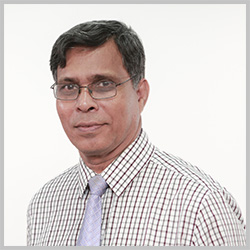
Md Liakath Ali
Director
Climate Change, BRAC and BRAC International
Urban Development, BRAC
Dr Md Liakath Ali is the director of the climate change programme at BRAC and BRAC International, and the urban development programme at BRAC.
Dr Ali has 32 years of working experience with various government, non-government, donor and UN agencies. He started his career with a private company in 1986, and later moved to Bangladesh Water Development Board (BWDB) in 1988, where he worked in the capacity of assistant engineer, sub divisional engineer and executive engineer until 2008. In 2008, he joined Dhaka Water Supply and Sewerage Authority (DWASA) as deputy managing director (RPD and O&M) and continued there until August 2011. He joined as a climate change adaptation specialist in CDMP-II, UNDP in January 2012. In November 2012, he moved to DFID (now FCDO) Bangladesh as the adviser for climate change and environment. Subsequently he joined WaterAid Bangladesh as the director of programme and policy advocacy, and worked there till August 2019.
Over the period he acquired experience in integrated water resources management, trans-boundary water basin management, climate change adaptation and resilience building, disaster management, risk reduction, urban development, and coastal planning and implementation. He is proficient in dealing with environmental issues including impact assessment and studies and projects management. He has a sound knowledge on many key thematic areas of operation and maintenance, institutional aspects, research works, macro and micro level planning and teaching. His key qualifications also include formulation of policy, strategy development, construction, monitoring and evaluation and knowledge management approach. He has a number of publications on environmental issues as well.
Dr Ali has excellent academic attainments. Academically he is an engineer who completed his BSc in Civil Engineering in 1986, from Bangladesh University of Engineering and Technology. He did his MSc in Hydraulic Engineering (Land and Development) from the International Institute for Infrastructural, Hydraulic and Environmental Engineering (IHE), Delft, The Netherlands in 1995. Later in 2002, he completed his PhD from the Wageningen University and the International Institute for Infrastructural, Hydraulic and Environmental Engineering (IHE), Delft, The Netherlands.
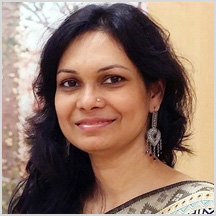
Dr Morseda Chowdhury
Director
Health, Nutrition and Population
BRAC
Dr Morseda Chowdhury is the Director of Health, Nutrition and Population Programme (HNPP) at BRAC.
Previously, Dr Chowdhury has been leading the HNPP as the Associate Director of HNPP. During 2014-2018, she held the position of Programme Coordinator in HNPP. She joined BRAC in 2005 as a Medical Officer, and over the course she consistently grew in various roles and responsibilities within HNPP. She has been playing an instrumental role, from programme design to the implementation, especially to reduce maternal, neonatal and child mortality among the underprivileged population in Bangladesh. Since the current pandemic broke out in early 2020, she has been providing strategic leadership and hands-on guidance for BRAC COVID-19 health response.
Dr Chowdhury has successfully managed various projects with multiple partners, including the Government of Bangladesh, UNICEF, Bill and Melinda Gates Foundation, Foreign, Commonwealth and Development Office of the UK government (FCDO), Department of Foreign Affairs and Trade (DFAT) of the Australian government, Embassy of the Kingdom of the Netherlands (EKN), etc. She also co-leads the disability inclusion committee, is a member of the young professional (YP) advisory committee, Sir Fazle Hasan Abed Values Award committee, grievance management committee, disaster management steering committee and programme coordination committee at BRAC.
In 2018, Dr Chowdhury earned her PhD from the School of Public Health, the University of Sydney, Australia. In her academic career, she received many prestigious awards and scholarships. Some of the key ones include Chancellor's Gold Medal, Vice Chancellor's Gold Medal, and Allan Rosenfield Best Performance Award from BRAC University, and Endeavour Postgraduate Research Scholarship from the Australian Government. In recognition of her commitment and dedication to the organisation, she received the BRAC Values Award in 2012.
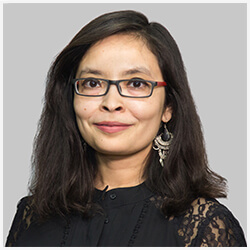
Moutushi Kabir
Director
Communications, Learning and Leadership Development
BRAC
Moutushi Kabir joined BRAC in January 2018. She has over 18 years of international, senior leadership experience in diverse sectors namely advertising, telecommunications, tobacco and healthcare. Prior to joining BRAC, she was heading Global Leadership and Associate Communications at Sandoz International, a division of Novartis Pharmaceuticals, based in Germany.
She brings in-depth experience spanning the total spectrum of reputation management, internal communications, cultural transformation, executive communications, public relationship, crisis management, and sustainability. She has partnered with global senior leadership team members to shape their messaging and communications style, and have designed and executed multi-country employee engagement and cultural change campaigns within complex, matrix environment.
Ms. Kabir started her career in the advertising industry and has taken progressively senior roles in leading multinational companies like British American Tobacco, Telenor Bangladesh, Nokia and Novartis. She was the Regional Communications Head of Nokia Emerging Asia overseeing five countries (Bangladesh, Sri Lanka, Nepal, Maldives and Bhutan), the Head of Corporate Affairs of Novartis Bangladesh and the Global Head of Quality Communications of Sandoz International, for their 40 plus manufacturing sites across the world.
She completed her bachelor’s in business administration specialising in marketing from Institute of Business Administration, University of Dhaka and master’s in business administration specialising in Corporate Social Responsibility from University of Nottingham, UK.
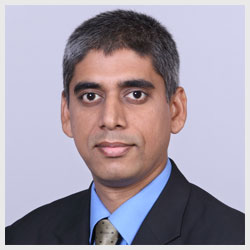
Nanda Dulal Saha FCA
Director
Internal Audit, BRAC and BRAC International
Mr Nanda Dulal Saha is an experienced professional with 15 years’ of specialized work experience in areas of corporate governance, internal control, compliance, accounting, risk management and IT. He joined BRAC as head of internal audit in 2007 and continues to serve the organization as an internal audit leader. Under his leadership, the internal audit function plays an important role in providing risk-based assurance, advisory and insights to management of BRAC and BRAC International. Prior to joining BRAC, he worked for audit and assurance services with Rahman Rahman Huq, Chartered Accountants (KPMG Bangladesh).
He served on the board of BRAC EPL Investments Limited from 2009 to 2014. Mr Saha provided assurance services for Asian University for Women, BiTS, BRACNet, BRAC University and its institutes. He was board member of Information System Audit and Control Association (ISACA) Dhaka, Bangladesh Chapter from 2012 to 2015 and Chairman of Finance, Audit and Compliance Committee of ISACA Dhaka Chapter during 2014-15. He served as a member of Quality Assurance Board, Review Committee for Best Published Accounts & Reports (RCBPR), Professional Accountant in Business, Technical and Research Committee (TRC), Information & Communication Committee, Members Services and Welfare Committee (MSWC) under ICAB.
Mr Saha was the faculty of BRAC University and is a resource person for training courses on internal audit and risk management organized by IIAB. He developed the Enterprise Risk Management (ERM) framework of BRAC International in the Asian and African countries by providing extensive capacity building training and consultation.
At present, he serves on the board of The Institute of Internal Auditors of Bangladesh (IIAB) as the Treasurer and chairs the Standards Implementation Sub-Committee of IIAB. Besides, he is currently member of multiple committees under ICAB.
Mr Saha is closely affiliated with a number of national and international level forums and networks such as South Asian Federation of Accountants (SAFA), Confederation of Asian and Pacific Accountants (CAPA), The Institute of Internal Auditors (IIA, USA), The Institute of Chartered Accountants of Bangladesh (ICAB) and has attended many training, seminars and conferences organized by these bodies in the country and abroad.
Mr Saha is a fellow member of the Institute of Chartered Accountants of Bangladesh (ICAB) and a member of The Institute of Internal Auditors (IIA), USA and IIA Bangladesh, and also member of Information Systems Audit and Control Association (ISACA), USA and member of ISACA Dhaka, Bangladesh Chapter.
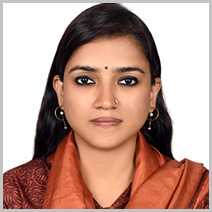
Nobonita Chowdhury
Director
Preventing Violence Against Women Initiative, BRAC
Gender Justice & Diversity, BRAC
Nobonita Chowdhury is the Director of Preventing Violence Against Women Initiative and Gender Justice & Diversity at BRAC.
Ms Chowdhury holds over two decades of outstanding experience in journalism,media and communications. Prior to joining BRAC, she was the Editor of DBC News. As a journalist, she has worked for leading electronic and print media organisations at home and abroad, including the BBC in the UK and Ekattor Television in Bangladesh. She became a household name as a presenter of radio and television talk shows and rose to nationwide prominence hosting her own primetime talk show “Rajkahon- Nobonita Chowdhuryr Shathe”. These experiences have helped her master a strong ability to identify, absorb and prioritise complex information and present it to the target audience in the most effective manner to achieve the highest possible impact.
As a member of the communications team at mobile operator Robi, she had the rare opportunity to strategize and execute the external communications for the first and biggest ever merger in Bangladesh’s telecom sector between Robi and Airtel in 2016. She had played a pivotal role in developing the messages and communication materials for UNICEF’s nationwide ‘Quality Education for All’ campaign in her early twenties as a social communication executive of Bitopi Advertising agency.
Ms Chowdhury started her career as a Sub Editor in the Daily Bhorer Kagoj, when she was only 18 after being a regular writer/contributor for few years already. After joining Ekushey Television as a researcher during her university days, she had travelled all over Bangladesh to find out real life stories from the grassroots- from Teknaf to Tetulia, Sundarbans to Chittagong Hill Tracts, including the Chars and Haors. Her travel exposure to rural Bangladesh and the world has given her an unparalleled ability to analyse and understand the obstacles and progression of various societies.
Ms Chowdhury has received the prestigious ‘Anannya Top Ten Award’ in 2017 as a leading woman of her time. She had the honour to seat as a member of the Jury Board for the ‘Nasreen Smrity Padak’ given annually by Action Aid- Bangladesh. Ms Chowdhury has been invited to speak at the Plenary Session of the World Press Freedom Day Global Conference in Addis Ababa, organised by the UNESCO in 2019.
Ms Chowdhury holds an MA in Human Rights Law from School of Oriental and African Studies (SOAS), University of London, and an LLB (Hons) from University of Dhaka.
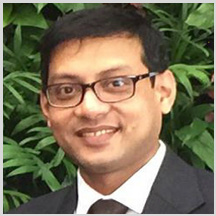
Palash Kanti Das
Director
Ultra-Poor Graduation, BRAC
Palash Kanti Das is the Director of Ultra-Poor Graduation Programme at BRAC.
Mr Das is a seasoned development professional with over 20 years of experience in the sector. He brings strong expertise in the fields of sustainable and inclusive development, international relations, gender equality and diversity, and general management in the non-profit sector. Prior to joining BRAC, he served as Programme Management Specialist at UN Women Bangladesh Country Office along with a tenure at Strategic Planning Unit, UN Women Headquarters in New York, USA. Previously, he also served as the Assistant Country Director and Head, Poverty Reduction and Inclusive Growth, UNDP, and led Christian Aid UK as the Country Director in Bangladesh. He served Oxfam at the South Asia Regional Center and Oxfam Bangladesh in various leadership roles.
Mr Das holds a Master of Arts in Economics from Delhi School of Economics, Delhi University, and a Bachelor of Arts from Shri Ram College of Commerce, Delhi University.
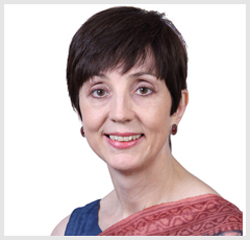
Rachel Kabir
Director
Chairperson's Office, BRAC
Rachel Kabir joined BRAC as the director of the chairperson’s office in 2013. She is also secretary to the BRAC Governing Body and Stichting BRAC International Governing Board and is in charge of the internship and visitors’ units. Prior to this, she was responsible for coordinating the labour welfare activities of one of Bangladesh’s leading tea companies for three years. This encompassed the provision of housing, safe water, sanitation facilities, primary healthcare, health education, primary education and crèches for pre-school children.
She has worked for 17 years as a freelance writer and researcher on children’s issues in Bangladesh, principally for UNICEF, Save the Children and the Government of Bangladesh. Her writing assignments covered a wide range of topics, including child rights, child protection, adolescents, early childhood development, nutrition, health, education, water and sanitation. She drafted a number of national-level documents including the national programme of action to achieve child survival and development goals for 1990-95, the national plan of action against sexual exploitation and abuse of children, and the government of Bangladesh’s first periodic report to the UN Committee for the Rights of the Child.
Ms Kabir was the principal researcher in consultations with children on various forms of sexual abuse and exploitation and in a qualitative study on child abuse in Bangladesh. She also acted as an advisor to a national study on child abuse and domestic violence in Turkey. Ms Kabir started her career as a solicitor in London, working for a long-established private client firm in Lincoln’s Inn and a West End specialist media/entertainment firm, after completing a BA in law at the University of Cambridge and the Law Society’s Final Examination (for solicitors).
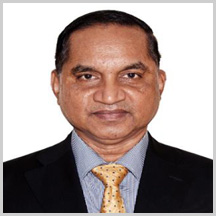
Rear Admiral M Makbul Hossain
Director
Operations, BRAC
Rear Admiral M Makbul Hossain, NBP, OSP, BCGMS, ndu, psc (Retd) is the director of Operations at BRAC.
Rear Admiral Makbul is a military professional who has a very successful naval career of 38 year 5 months. During his long and colourful naval career he has served both home and abroad in military and also outside military. Rear Admiral Makbul commanded all types of Bangladesh Navy ships namely Frigate, Large Patrol Craft, Minesweeper, Patrol Craft, Fast Attack Craft’ Squadrons (both Missile and Torpedo squadrons) and also commanded all Major Bases of Bangladesh Navy. He also served the United Nations Protection Force (UNPROFOR) in Bosnia & Herzegovina as Chief 5 of the Sector Bihac where he earned very good name and fame for doing outstanding humanitarian aid programme and received letter of appreciation from UNPROFOR HQ. He has served as Principal of Marine Fisheries Academy on deputation under Ministry of Fisheries and Livestock and raised the status of the Academy to a great extent. He also worked as Director in Naval Headquarters and Director in Directorate General of Forces Intelligence (DGFI).
As Flag Officer Rear Admiral Makbul performed the duties of Commander Chittagong Naval Area (COMCHIT), Commander Special Warfare , Diving & Salvage Command (COMSWADS) Administrative Authority Dhaka and Assistant Chief of Naval Staff (Personnel). He commanded Bangladesh Coast Guard as Director General. Prior retirement he has served 4 years in Naval Headquarters as Assistant Chief of Naval Staff (Operations) who had 13 directorates under his direct control.
Along with his military professional career he has also worked in Bangladesh Scouts as Regional Commissioner. He was the member of Board of Governors of Bangladesh Institute of International Strategic Studies (BIISS). He also supervised the business activities of 3 Shipyards named Chittagong Dry Dock Limited, Narayangonj Dockyard Engineering Works Ltd and Khulna Shipyard Ltd as Member of Board of Directors.
Rear Admiral Makbul joined Bangladesh Navy as an Officer Cadet in January 1979 and completed his UT Officers’ Basic Course along with sub-specialisation of 5 years duration from Marshal Tito Naval Academy, Split, Former Yugoslavia. He was commissioned on 01 August 1981 in Executive Branch of Bangladesh Navy.
Rear Admiral Makbul attended various courses both at home and abroad. He took part in specialisation on Anti-Submarine Warfare from India in 1990 and graduated from Defence Services Command and Staff College, Mirpur, Dhaka in 1994. He obtained Master in Defence Studies (MDS) from National University, Gazipur, Bangladesh in 1995. He completed Defence and Strategic Studies Course from National Defence University (NDU) of China and received Advance Diploma Degree in 2012. Rear Admiral Makbul also did Officer's Weapon and Junior Officer's Tactics Course (OW & JTC) in SI&T, Sylhet, Deputy President Course, C programming course and also did Crisis Management Course in Hawaii, USA and Transnational Counter Terrorism Course in Washington DC, USA. He also attended many seminars and symposium on national and international security matters especially maritime security related seminars both in home and abroad.
He was awarded with the Noubahini Padak (NBP), Oshamanno Sheba Padak (OSP) of Navy and Bangladesh Coast Guard Medal Sheba (BCGMS) by the Government of Bangladesh for his outstanding performance and contribution in his illustrious naval career.
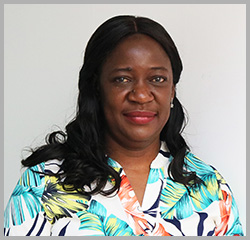
Ruth Okowa
Director, Africa Region
BRAC International
Ms Ruth Okowa is a seasoned development professional with over 17 years of distinguished and illustrious experience in senior management positions in different countries.
Before joining BRAC International, Ruth served as the Deputy Regional Vice President for Living Water International, Africa, where she was responsible for providing strategic leadership to six country offices in areas of partnership building, fundraising, governance, and programme implementation. Prior to this, she served as the Programme Manager, Family Health International; Programme Director, Community and Reproductive Health, World Neighbors East Africa; CEO, The Health NGOs Network; Country Director, SOS Children's Village, Kenya; Director, Strategy for Africa; and Regional Director, Living Water International, Southern Africa. Additionally, she has undertaken a number of consultancy assignments and research projects for different national and international organisations.
Ms Ruth has a BA in sociology from Kenyatta University and an MA in demography from University of Nairobi.
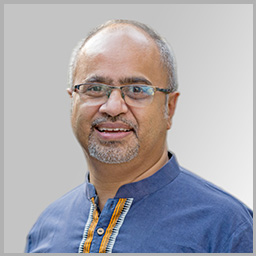
Safi Rahman Khan
Director
Education,
Skills Development, and
Migration
BRAC
Safi Rahman Khan is the Director of education, skills development and migration programme at BRAC.
Mr Khan has been the Strategy and Transformation Advisor of BRAC education programme since October 1, 2020 and has been involved in various strategic initiatives of education programme, including the social enterprise wing. Prior to joining BRAC, he was the Advisor (Strategy) in Apex Footwear Limited (AFL) under Apex Group. Earlier, he was the Executive Director, overseeing human resources and compliance at AFL. His initial appointment in the Apex Group was as the Project Director of Blue Ocean Footwear Limited, a Bangladeshi-Taiwanese joint venture, where he led the first phase of the project.
Mr Khan has experience working in the social sector. He was the Executive Director of the Bangladesh Freedom Foundation, an indigenous grant-making organisation, where he guided the Foundation’s revised strategic focus and reduced institutional costs while increasing the grant-making budget. He was also the Country Representative of Ashoka Innovators for the Public in Bangladesh, a US-based international network of social entrepreneurs working on system changing ideas, and was responsible for restarting the country programme and overseeing the election of 28 Ashoka Fellows.
Mr Khan has taught courses on NGOs and Social Entrepreneurship and conducted workshops on corporate governance for NGO Board members. He is currently on the Board of two Bangladeshi not-for-profit organisations, Nagorik Uddyog and Safety & Rights, and was previously on the Boards of The Resource Alliance (UK) and the Asia Pacific Philanthropy Consortium (Philippines). He holds an undergraduate degree in Mathematics from Lawrence University, USA and an MBA from Victoria University, Australia.
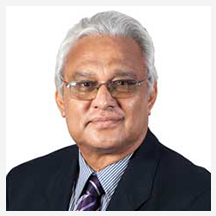
Saieed Bakth Mozumder
Director
Tea Estates, BRAC
Saieed Bakth Mozumder serves as the director of BRAC’s tea estates division. He joined James Finlay Limited while studying history at the University of Dhaka. Prior to joining BRAC in 2003, Mr Mozumder worked as assistant manager, divisional manager, and was subsequently promoted into the office of superintendent at James Finlay, Doloi and Noyapara Tea Companies incorporated in the UK. He was visiting superintendent and then the general manager in National Tea Company Limited.
In 1993, Mr Mozumder was appointed as general manager of Tea Holding of Transcom Group. He was also employed by HRC Group to develop two estates under tea, rubber and afforestation as general manager, and subsequently as executive director of plantation.
Mr Mozumder was the secretary of Balisera Planters’ Club, and represented the Bangladeshiyo Cha Shangshad on a variety of boards and committees. He was also the director of the board and executive committee of One Bank Limited, and a director in the board of National Tea Company Limited.
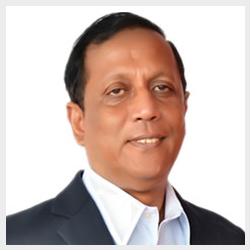
Sajedul Hasan
Director
Disaster Risk Management, BRAC and BRAC International
Mr Sajedul Hasan is the director of Disaster Risk Management Programme at BRAC and BRAC International.
Mr Sajedul is a Social Scientist by academic training, is an international humanitarian and development professional with about 30 years of experience in providing leadership, technical and programme assistance in the areas of food security, disaster risk reduction, emergency response, conflict mitigation, and strategic policy formulation. He has extensively worked in Asia and Africa with different programme components around sustainable development, emergency preparedness and humanitarian programme management.
Prior to joining BRAC, Mr Sajedul worked as Chief of Party for Suchana Programme of Save the Children International in Bangladesh. During 2011-2016, Sajedul worked as Director of the Asian Disaster Preparedness Center (ADPC) based in Bangkok, Thailand and provided leadership and strategic guidance to ADPCs work on Disaster Risk Reduction and Emergency Preparedness in the countries in Asia and Pacific. Mr Sajedul also held the position of Chief of Party for the OFDA funded Programme for Enhancement of Emergency Response (PEER) which was implemented in 10 countries in Asia. He has worked with CARE International in Bangladesh, Georgia, Sierra Leone, Jordan/Iraq and Indonesia. Also, he has worked as an active member of CARE International's CERT (CARE Emergency Response Team) and participated in various emergency response (Indonesia Tsunami response, Iraq refugee response, Liberia refugee response, Georgia emergency in 1992). Sajedul also responded to some of the major disasters in Bangladesh (cyclones in 1991 and 2007 and floods in 1988 and 1998).
Mr Sajedul possesses skills and experiences in emergency preparedness and response, conflict mitigation and peace building, refugee camp management, mainstreaming disaster risk reduction into development programmes, partnership programming with government, UN agencies and NGOs, training and capacity building and monitoring and evaluation.
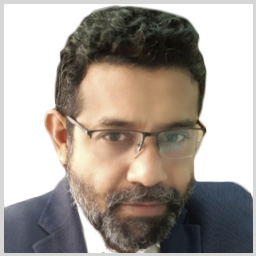
Shahriar Hoque
Director
Technology, BRAC
Shahriar Hoque leads the organisational Digital Transformation and ICT4D mandates with a strong resolve to create opportunities that empower people and communities. A seasoned Technologist, with 23 years of global experience, he specialises in governance, change management, transformational initiatives, and international project supervision in applied IT.
Prior to joining BRAC in 2016, he worked 17 years in various technical expertise and leadership capacities for the Federal Government of Canada, Nortel Networks & Bombardier Aerospace.
At BRAC, Mr Shahriar Hoque directs portfolios through which clients benefit from information communication and technology enabled services. He plays a vital role, from strategically designing programme digitalisation to up-keeping organisational development agenda and tech infrastructure. He oversees a Project Management Unit, and wide range of implementations like, Enterprise Resource Planning and Information Systems. Cumulatively these facilities contribute to the organisational preparedness for the VUCA (volatility, uncertainty, complexity and ambiguity) world.
Mr Shahriar Hoque was the recipient of several recognitions for contribution as a Canadian Public Servant. In 2002, 2006 and 2010, during his tenure with the Canada Revenue Agency he respectively received Recognition for Outstanding Work on Tax On Net Income, Recognising Excellence award for Two-Dimensional Bar Code Project, and Recognising Excellence award for Dedication & Contribution to the ITB Workplace, Health & Safety. He was then assigned to Shared Services Canada, a newly formed Government department, to streamline IT services and develop governance model for which in 2014 he received another recognition for Exceptional Contribution to the ETI Programme.
Mr Shahriar Hoque has done his Bachelors in Computer Science from Concordia University, Montreal, Canada and MBA in Financial Services at Université du Québec à Montréal, Canada. He is also a holder of Fellowship FICB (Fellow, Institute of Canadian Bankers), a prestigious accreditation which has been bestowed on over 10,000 leaders in the banking sector from Canadian Securities Institute – CSI. He was also named in the Dean's Honours List for remarkable performance towards the completion of Cégep – ‘Collège d'enseignement général et professionnel’, issued by Dawson College, Montreal, Canada.
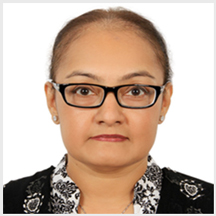
Sheela R Rahman
Director
Legal and Compliance, BRAC
Sheela R Rahman is the director of Legal and Compliance at BRAC.
Sheela R Rahman is a lawyer who has practised and worked in Bangladesh since 1990, with rich experience as in-house counsel, litigator and trainer. She has expert legal and practical knowledge of banking, corporate finance, corporate and commercial matters, regulatory compliance, and corporate governance. Ms Rahman has also been senior counsel at a few law offices, including Rokanuddin Mahmud and Associates and Syed Ishtiaq Ahmed and Associates, and lastly built her own practice, Maxima.Legal. She has worked as a consultant to international development organisations on secured transactions and corporate governance, law reform proposals, training, and a team member for publications on SME governance and connection of best practices with corporate performance. Ms Rahman has also been an adviser to Teach for Bangladesh and Habitat for Humanity Bangladesh.
Ms Rahman holds an LL.M. degree from University College London and is a Barrister-at-Law, having been called to the Bar of England and Wales from Lincoln’s Inn in London. She is an Advocate, Appellate Division, Supreme Court of Bangladesh.
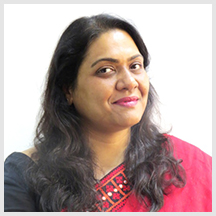
SK Jenefa K Jabbar
Director
Social Compliance and Safeguarding
BRAC
SK Jenefa Khanom Jabbar leads the safeguarding unit and the social compliance unit at BRAC. She is also expanding BRAC’s social compliance work with a renewed focus on the RMG sector. She joined BRAC in January 2019, as the Director of the then human rights and legal aid services (HRLS) and social compliance. She also chairs the sexual harassment elimination committee at BRAC, and is the legal adviser of the organisation’s safeguarding team and BRAC University.
Prior to joining BRAC, she worked as the Regional Responsible Sourcing Director for JCPenney Purchasing Corporation overseeing South Asia, Middle East and Africa. She has a decorated career of 23 years with experience of working with renowned organisations including BRAC University, UNDP, ILO, Bangladesh Garment Manufacturers and Exporters Association (BGMEA), TESCO, Gap Inc and Dr Kamal Hossain & Associates. She practiced law as an advocate in the Supreme Court of Bangladesh for more than nine years and is on the Independent Experts Committee of Keeping Children’s Safe (KCS).
Ms Jenefa is a Barrister-at-Law from Lincoln’s Inn, United Kingdom. She has several publications and is a member of the Honourable Society of Lincoln's Inn, United Kingdom and Dhaka Bar Association.
.
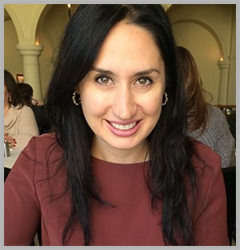
Sonia Wallman
Director
Grants Management
Global Resource Mobilisation and Partnership(GRP)
BRAC and BRAC International
Sonia Wallman is the Director of Grants Management as part of the GRP team.
Prior to joining BRAC, Ms Wallman spent fifteen years with Save the Children within various grants and contract management capacities. She began as emergency management support following the 2004 Indonesian tsunami advising on the new and diverse emergency funding portfolio. After a few years of working with the Children in Emergencies and Crisis Department, she moved to the Regional Financial Controlling team as the Grants and Contracts Manager providing compliance support and contractual reviews and approvals for the Middle East, Eastern Europe and Africa. Most recently, Ms Wallman held the position of Director of Strategic Portfolio and Awards Management, supporting 13 countries across the Middle East and Eastern European region, supporting ongoing and complex crises in the Occupied Palestinian Territories, Syria, Turkey, Jordan, Iraq, Yemen, Lebanon and the broader Mediterranean region. During her time as Director, she supported the growth of the regional annual operating budget from $48M to $250M. She led major projects including supporting the global restructuring and redesign of the award management scope inclusive of new business development, and led the embedding of that change in her region. She supported Country Offices to design and implement funding strategies to realise programmatic ambitions. She advised on donor compliance, business development, and contractual arrangements with local partners and vendors. She also possesses business writing and process management skills to build and manage consortia, and lead large and complex proposal development processes.
Prior to her tenure at Save the Children, Ms Wallman worked at CARE USA in the emergency unit and interned with the US State Department at their embassies in Morocco and Egypt within their political and economics bureaux respectively. She also interned with the World Food Program in Rome drafting content for its global gender policy.
Ms Wallman has a Bachelor of Arts in Middle Eastern Studies (major) and City and Regional Planning (minor) from the University of California at Berkeley, and a Master of Regional (Urban) Planning from Cornell University.
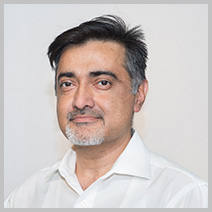
Syed Mazbahul Morshad
Chief Engineer
Construction and Maintenance Department, BRAC
Syed Mazbahul Morshad is the chief engineer at BRAC Construction and Maintenance department. As the head of the unit, Mr Morshad is responsible for the implementation of all construction projects. He has 25 years of expertise in supervising the engineering work of various projects, from cyclone shelters to pre-fabricated steel bridges.
Previously, Mr Morshad served as the general manager at Hamid Construction Ltd. Prior to this, he worked at BRAC as the assistant chief engineer, expanding on the construction of physical infrastructure of BRAC’s development activities throughout the country.
Mr Morshad completed his Bachelor’s of Science in civil engineering from CUET, and holds an MBA from BRAC University.
Governing Body
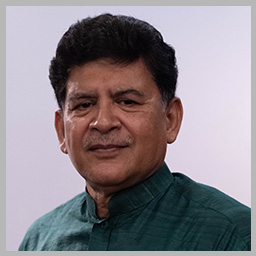
Dr Hossain Zillur Rahman
Chairperson
Economist and social thinker Dr Hossain Zillur Rahman is a leading policy voice of Bangladesh with over three decades of experience within and outside government. Holding a masters in economics from Dhaka University, and PhD in political sociology from the University of Manchester, UK, Dr Rahman was a leading researcher at the Bangladesh Institute of Development Studies between 1977 and 2000, and led the internationally renowned Analysis of Poverty Trends project (1989-98). In 1996, he founded the think tank Power and Participation Research Centre (PPRC) and has been its executive chairman since 2000. He was the lead consultant for the preparation of the first poverty reduction strategy paper, Unlocking the Potential, 2005, of the Government of Bangladesh and was a member of the SAARC Poverty Commission. Dr Rahman has also sat on the board of the central bank.
He authored and edited many influential publications on poverty, social protection, governance, urbanisation, inclusive growth, social development and sustainable healthcare. Some of his noted works include Rethinking Rural Poverty (SAGE, 1995); Local Governance and Community Capacities (UPL, 2002); Unbundling Governance (PPRC, 2007); Researching Poverty from the Bottom up (PPRC/Grameen Trust, 2007); Bangladesh 2030: Strategy for Accelerating Inclusive Growth (DCCI/PPRC, 2010); Bangladesh Urban Dynamics (PPRC/World Bank, 2012); Bangladesh: Primary Education Stipends (PPRC/UNICEF, 2013); Social Protection in Bangladesh (UPL, 2014); Road Safety in Bangladesh (PPRC/BRAC, 2014); Realizing UHC Goals: Challenges & Opportunities for Bangladesh (PPRC, 2016); The Urban Spectrum: Metropolitan to Mofussil (PPRC/BBS, 2016); Exploring a more effective pro-poor targeting approach (PPRC/USAID, 2018).
He has been a consultant to international organisations such as The World Bank, ADB, DFID (now FCDO), JICA, JBIC, UNDP, UNICEF, SIDA, SDC, WFP and UNFPA. As a regular resource person at the National Defense College, Dhaka, Dr Rahman lectures on nation-state system, world economic scene, national security and sustainable development. He is also the convener of civic platforms such as Health Bangladesh, and Safe Roads and Transport for All (SROTA).
On 9 January 2008, Dr Rahman was appointed as an advisor to the former caretaker government of Bangladesh and put in charge of the ministries of commerce and education. He served till the end of the tenure of this government on 6 January 2009, and was credited with a lead role in the successful return of electoral democracy to Bangladesh.
He was awarded Dr John Meyer Global Citizenship Award by the Institute for Global Leadership of Tufts University, USA, in November 2009. He became one of the three awardees of the Gold Medal Award 2013 of Rotary International Bangladesh for his services to humanity.
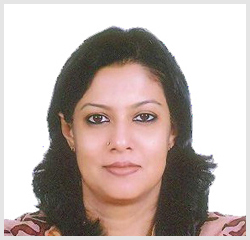
Adv. Syeda Rizwana Hasan
Member
Adv Syeda Rizwana Hasan is an enrolled lawyer with the Supreme Court of Bangladesh. She works for the cause of environment as the Chief Executive of the Bangladesh Environmental Lawyers Association (BELA), a reputed national NGO. Her main focus is on promoting the notion of environmental justice in Bangladesh. Ms Hasan did her masters and graduation in law from the University of Dhaka with distinction. She started her career with BELA in 1993 and till today is continuing with the same organisation. As the Chief Executive of BELA, Ms Hasan is responsible for the overall coordination of the activities of BELA, including research, awareness raising, public interest litigation (PIL), and advocacy. She has filed PILs on various environmental issues, most of which have received favourable orders/ judgments. She has fought against vehicular pollution, river pollution, industrial pollution, ship breaking, grabbing of wetlands, cutting of hills, unregulated mining, unplanned urbanisation, commercial shrimp cultivation, deforestation, and loss of biodiversity. Her cases are redefining the current notion of development that is devoid of environmental consideration. Since she is an anthropocentric environmentalist, her efforts are adding value to conventional human rights movement by bringing in the elements of environmental justice. She places people’s legitimate rights at the center of her activism. BELA received the Global 500 Roll of Honours of the UNEP in the year 2003, and in 2007 won the Environmental Award given by the Department of Environment for popularising environmental law. Ms Hasan is a recipeint of the prestigious Goldman Environmental Prize. She has been named as one of the 40 Environmental Heroes of the World by TIME magazine. Recognising her impassioned leadership, hard-driving skill, and uncompromising courage in the campaign of judicial activism that has demonstrated that the right to environment is nothing less than a people’s right to dignity and life, Ms Hasan was awarded the Ramon Magsaysay Award in 2012.
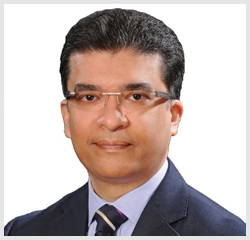
Adeeb H. Khan
Member
Adeeb H Khan qualified as a Chartered Accountant in England in 1991 and has been Senior Partner of Rahman Rahman Huq (Member Firm of KPMG International) since 2012.
He has been a Council Member of the Institute of Chartered Accountants of Bangladesh (ICAB) since 2013. He was the President of ICAB for 2017. He is a member of the Executive Committee of Bangladesh Legal Aid and Services Trust (BLAST), perhaps the largest legal aid organisation in Bangladesh. He is serving his third term as an Executive Committee (EC) member of Metropolitan Chamber of Commerce & Industry (MCCI), the oldest and one of the most prestigious trade chambers of Bangladesh, chairing its Taxation Sub-Committee.
Mr Khan’s past directorships include Biman Bangladesh Airlines, the national Flag carrier of Bangladesh, and Electricity Generation Company of Bangladesh Limited. He frequently speaks at various forums on matters connected to taxation, corporate governance, and private sector reform.
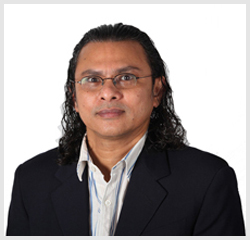
Shafiqul Hassan
Member
Shafiqul Hassan is the managing director of Echo Sourcing Limited UK and Echotex Limited Bangladesh. Echotex received Bangladesh’s National Environmental Award, Metropolitan Chamber of Commerce and Industry, Dhaka’s Environmental Award, and J Sainsbury plc’s Corporate Social Responsibility Award in 2010. Echotex was also awarded Best Clothing Supplier in 2011 as well as Best Clothing Supplier and Supplier of the Year in 2012 by J Sainsbury plc.
Mr Hassan co-founded a premium clothing label called Ninety Percent, launched in 2018, that shares ninety percent of its distributed profits between social and environmental causes, along with the people who are involved in making the clothes. He is the co-founder of Children’s Hope, an NGO that works to educate slum children in Dhaka.
He obtained his undergraduate degree from City University, London and postgraduate degrees from Aston University, Birmingham, UK.
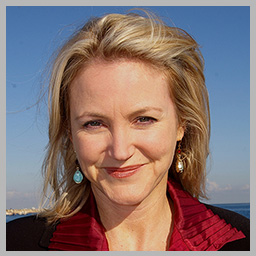
Melissa Parke
Member
Melissa Dawn Parke has over two decades of experience in international law, politics, sustainable development, humanitarian affairs, human rights and governance. She served as Minister for International Development and is a former federal member for Fremantle.
Prior to entering the Australian parliament Ms Parke served as an international lawyer with the United Nations for eight years in Kosovo, Gaza, New York and Lebanon. Following her retirement from parliament, she worked as an ‘Eminent Expert on Yemen’ for the UN Human Rights Council.
Ms Park is an ambassador for the International Campaign to Abolish Nuclear Weapons, and a member of the Advisory Council of the Australian Centre for International Justice.
She holds bachelor’s degrees in business (Curtin University) and law (University of New South Wales), and a master’s degree in public international law (Murdoch University).
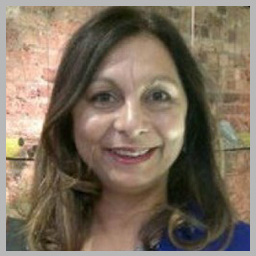
Fathima Dada
Member
Fathima Dada has worked in education throughout her career. She has worked as a teacher, lecturer, university external examiner, children’s author and textbook author. Her books have sold over a million copies.
Ms Dada has held almost every level of job in the education industry - from strategy, global product management and marketing, to production and design, sales and sales strategy in the roles of MD, CEO and chairperson. She is currently the managing director of Oxford Education and chairs the Board of OxfordAQA qualifications.
She has also been involved with government and non-governmental work in policy, curriculum, assessment, qualifications and implementation. She has served on several ministerial committees and overseen education reform and policy development in several countries, including working for UNESCO to support education systems in Mozambique, Malawi and Zambia. She has been a council member on the Schools and Vocational Quality Assurance authority in South Africa for 10 years. She helped lead the transformation to sustainability of the education programme of BRAC in Bangladesh.
Ms Dada is on the Board of Oasis Asset Management, and has previously been an active Board member to affordable school chains ie, Omega (Ghana), Spark (South Africa),Bridge (Kenya) and Zaya (India). She is the chairperson of Africa Ignite, a non-profit working for rural community development, and a trustee of MIET, a non-profit working with children in Africa.
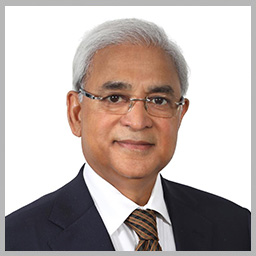
Tapan Chowdhury
Member
Tapan Chowdhury is a prominent industrialist and leads SQUARE, one of the pioneer and respected business houses of Bangladesh. SQUARE is engaged in Pharmaceuticals, Hospitals, Vertically Integrated Textiles, Toiletries, Food & Consumer Products, Information & Communication Technology, Organic Tea Plantation, Stock Brokerage and Satellite TV Broadcasting.
During the last Caretaker regime, Mr Chowdhury was an Adviser (Minister) responsible for the Ministry of Power & Energy, Youth & Sports, Food & Disaster Management and Science & ICT.
Mr Chowdhury was the Immediate Past President of Bangladesh Textile Mills Association (BTMA) and Former President of The Metropolitan Chamber of Commerce and Industry (MCCI), Past President of Bangladesh Employers Federation (BEF) and Bangladesh Association of Publicly Listed Companies (BAPLC).
Mr Chowdhury is currently an Advisor to Bangladesh Association of Pharmaceutical Industries (BAPI), Trustee of Bangladesh University of Health Sciences Trust (BUHS), Director of Pioneer Insurance Limited, Guardian Life Insurance Limited, Board Member of Central Depository of Bangladesh Limited (CDBL), Governing Body Member of Bangladesh Enterprise Institute (BEI), Executive Committee Member of International Chamber of Commerce (ICC) and Core Group Member of The United Forum of Churches of Bangladesh.
The Government has recognised him over the years as one of the highest individual taxpayers of the Country. He is a Graduate of University of Dhaka and completed many advanced level courses on Business Management and Strategic Planning from U.K.
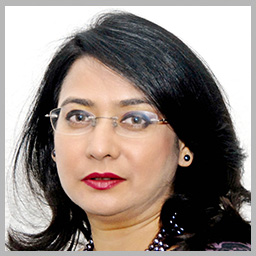
Dr Fahmida Khatun
Member
Dr Fahmida Khatun is currently the Executive Director of the Centre for Policy Dialogue (CPD), a leading think tank in South Asia. She has accomplished her Bachelors and Masters in Economics from Jahangirnagar University, Bangladesh. She did another Masters in Environmental and Natural Resource Economics and PhD in Economics from the University College London, UK. She did her Post-Doctoral research at the Earth Institute, Columbia University, USA. She was a Visiting Fellow at Christian Michelsen Institute, Norway, Korea Institute for Industrial Economics and Trade, South Korea and Center for Study of Science, Technology and Policy, India.
Dr Khatun’s areas of interest include macroeconomic policy and management, climate change and environmental economics, financial sector, international aid effectiveness, international trade and WTO issues, youth employment, gender issues, interests of Least Developed Countries, and Sustainable Development Goals. She has published extensively at home and abroad. She is a columnist to the Daily Star and contributor to the East Asia Forum.
She was a Director of the state-owned Janata Bank Limited during 2008-2011, and of the SME Foundation of Bangladesh during 2010-2013. She was a member of the Panel of Economists for the Eight Five Year Plan of Bangladesh Planning Commission.
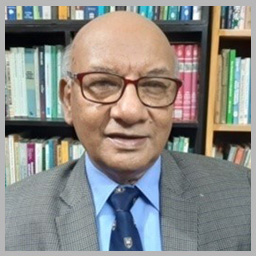
Dr M A Sattar Mandal
Member
Professor Mandal, an agricultural economist, has been involved in teaching, research and policy planning in agriculture and rural development for over four decades. Professor Mandal had his bachelor and masters in agricultural economics from BAU in 1973 and 1974, respectively. He did his PhD from the University of London in 1979 and post-doc studies from the University of Oxford in 1986-87. Major areas of Professor Mandal’s academic interests include agriculture and rural development, food and agricultural policy planning, irrigation and water resource management, agricultural technology, rural mechanisation and agribusiness development.
Professor Mandal was the Vice-Chancellor of Bangladesh Agricultural University (BAU), Mymensingh, during 2008-2011. He worked for the Bangladesh Planning Commission first as member of General Economics Division during 2000-2001 when he led the mid-term evaluation of the Fifth Five- Year Plan and completed the background studies for the Sixth Five Year Plan. He served the Planning Commission for the second term as member for Agriculture, Water Resources & Rural Institutions Division during 2011-2013 when he was involved in the evaluation and approval of many high profile projects relating to Blue Gold project, capital dredging of the Jamuna river, rural development, food security and poverty reduction.
Professor Mandal has been affiliated with BAU as its first Emeritus Professor of agricultural economics since 2017. He is currently a member of the syndicate of Bangladesh Agricultural University and Sylhet Agricultural University. He has been advising the Ministry of Agriculture, Government of the People’s Republic of Bangladesh as a member of its Expert Pool. He is currently a member of the Board of Governors of Brac- Bangladesh. Professor Mandal has been a member of the Independent Steering Committee (ISC) for the new CGIAR research program on Fish AgriFood Systems (FISH) of the WorldFish, Penang, Malaysia. Professor Mandal also advises Water Resources Group 2030 of the World Bank and CIMMYT- Bangladesh
Until recently, Professor Mandal was a government nominated member of the Board of Directors of the Krishi Gobeshona Foundation (Agricultural Research Foundation and also a Trustee of the Bangladesh Krishi Gobeshona Endowment Trust (BKGET) of the government. He also worked as a Senior Advisor to Food and Agriculture Organization of the United Nations (FAO) in Bangladesh during 2015-2016.
Professor Mandal led the preparation of important national policy documents such as Agricultural Mechanization Policy (2019), Reorganisation of the Department of Agricultural Marketing (2010), Reformation of Manpower Structure of the Department of Agricultural Extension- Ag economics and Ag engineering (2012), and Bangladesh Country Position Paper on Food Security for the SAARC Region (2007). He was also the lead researcher of the reports on Economics of Jute Production (2010), Synthesis of Agricultural Policies (2006), Bangladesh Fishery Research Vision- 2015 (2006), Poverty Reduction Strategy Paper-agriculture (2005), Dynamics of Aquaculture in Bangladesh (2004), National Agriculture Policy (1999), Flood Action Plan-12 & 13 (1991), and Agricultural Sector Review- Irrigation (1988).
He led many collaborative research projects with international funding and published his works widely as journal articles, reports, books and monographs. His co-edited book on “Rural Mechanization: A Driver to Agricultural Change and Rural Development” and his book in Bangla ‘Unnoyoner Golpo’ have been widely acclaimed. His edited Bangla book “Bangladesher Krishi Orthoniti- Bishoy O Bisletion” , first of its kind, is published by UPL. His extensive research works on irrigation institutions and water market significantly contributed to the consolidation of the privatisation policy for minor irrigation development of Bangladesh during 1990s. He has 86 published papers and book chapters, 72 conference papers and research reports and 13 books and monographs. He has received many prestigious awards.
He has worked as a visiting professor in many universities abroad including School of Development Studies of the University of East Anglia, UK in 1997 and 2000, and Faculty of Life Sciences of the Rhine-Waal University of Applied Sciences, Kleve, Germany since 2013 through 2017.
View BRAC International Supervisory and Managing Boards
Learning Resources
Books about BRAC
- Making Tuberculosis History: Community-based Solutions for Millions
- Freedom from Want: The Remarkable Success Story of BRAC, the Global Grassroots Organization That's Winning the Fight Against Poverty
- Breaking the Cycle of Poverty: The BRAC Strategy
- A simple solution: Teaching millions to treat diarrhoea at home
Papers, articles and other resources
Interested in sharing the story of BRAC's success with your students or classmates? Click here to view a list of articles, reports and books about BRAC's work from third-party researchers as well as our research and evaluation division. Below is a list of selected articles and case studies.
- BRAC Briefing Note #1 – "An end in sight for ultra-poverty: Scaling up BRAC’s graduation model for the poorest"
- BRAC Research Impact Assessment: Summarized by BRAC USA (PPT)
- From Aid to Enterprise: BRAC's Evolution from Relief to Sustainable Financial Services in Sri Lanka (PDF)
- Enabling Entrepreneurial Ecosystems (Innovations)
- In the Black with BRAC (Stanford Social Innovation Review)
- Thinking Big, Going Global: The Challenge of BRAC’s Global Expansion (Institute of Development Studies)
- Moving On Up: Banking for the Poor through Microfinance (London School of Economics)
- Beyond Lending: How Microfinance Creates New Forms of Capital to Fight Poverty (Innovations)
- Program Evaluation - Using Multidimensional Poverty Measures: Evidence from Targeting the Ultra Poor (University of Kentucky)
- Rethinking Food Security Strategy: Self-sufficiency or Self-reliance (FCDO)
- The Architecture of Audacity: Assessing the Impact of the Microcredit Summit Campaign (Innovations)
- BRAC - An Enabling Structure for Social and Economic Development (IESE Business School, University of Navarra)
Sir Fazle Hasan Abed KCMG
Chair Emeritus
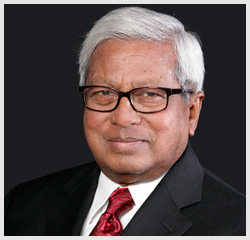
Sir Fazle Hasan Abed KCMG
Sir Fazle was born in 1936 in Bangladesh. He studied Accountancy in London, qualifying as a Cost Management Accountant in 1962. While he was working as a senior corporate executive at Pakistan Shell, the 1970 cyclone and 1971 Liberation War in Bangladesh dramatically changed the direction of his life. He left his job and moved to London, where he helped initiate Action Bangladesh and HELP Bangladesh in support of the Liberation War.
Early in 1972, after the war was over, he returned to the newly-independent Bangladesh, finding the economy in ruins. The return of 10 million refugees, who had sought shelter in India during the war, called for urgent relief and rehabilitation efforts. Sir Fazle established BRAC to address the needs of refugees in a remote area of north-eastern Bangladesh, guided by a desire to help the poor develop their own capacity to better manage their lives.
Today BRAC is one of the largest NGOs in the world, operating across eleven countries in Africa and Asia. Its primary objectives are to alleviate poverty and empower the poor. In 2018, for the third consecutive year, BRAC was ranked first among the world's top 500 NGOs by Geneva-based 'NGO Advisor' in terms of impact, innovation and sustainability.
Sir Fazle has been honoured with numerous national and international awards for his achievements in leading BRAC, including the LEGO Prize (2018), Laudato Si' Award (2017), Jose Edgardo Campos Collaborative Leadership Award, South Asia Region (2016), Thomas Francis, Jr. Medal in Global Public Health (2016), World Food Prize (2015), Trust Women Hero Award (2014), Spanish Order of Civil Merit (2014), Leo Tolstoy International Gold Medal (2014), CEU Open Society Prize (2013), Inaugural WISE Prize for Education (2011), Entrepreneur for the World Award (2009), David Rockefeller Bridging Leadership Award (2008), Inaugural Clinton Global Citizen Award (2007), Henry R. Kravis Prize in Leadership (2007), Palli Karma Shahayak Foundation (PKSF) Award for lifetime achievement in social development and poverty alleviation (2007), UNDP Mahbubul Haq Award for Outstanding Contribution to Human Development (2004), Gates Award for Global Health (2004), Gleitsman Foundation International Activist Award (2003), Schwab Foundation’s Social Entrepreneurship Award (2003), Olof Palme Prize (2001), InterAction Humanitarian Award (1998) and Ramon Magsaysay Award for Community Leadership (1980).
He is also recognised by Ashoka as one of the 'global greats' and is a founding member of its prestigious Global Academy for Social Entrepreneurship. In 2009, he was appointed Knight Commander of the Most Distinguished Order of St. Michael and St. George by the British Crown in recognition of his services to reducing poverty in Bangladesh and internationally. Sir Fazle was a member of the Group of Eminent Persons appointed by the UN Secretary-General in 2010 to advise on support for the Least Developed Countries. In both 2014 and 2017, he was named in Fortune Magazine’s List of the World’s 50 Greatest Leaders.
The many honorary degrees received by Sir Fazle Hasan Abed include those from Princeton University (2014), the University of Oxford (2009), Columbia University (2008) and Yale University (2007).
Contact us
Bangladesh/Headquarters
BRAC Centre
75 Mohakhali,
Dhaka-1212
Bangladesh
Communications
Tel: 88 02 2222 81265.
Fax: 88 02 2222 63542
E-mail: This email address is being protected from spambots. You need JavaScript enabled to view it.
Human Resources
Tel: 88 02 2222 81265
Help Line: 8801755692023-4 (9am to 5pm, Bangladesh Standard Time)
Designated Officer under RTI Act.
Md. Hafizur Rahman
Programme Manager and In-charge of Partnership Strengthening Unit (PSU)
Tel: 88 02 2222 81265, Ext: 3638, 3639
Fax: 88 02 2222 63542
E-mail: This email address is being protected from spambots. You need JavaScript enabled to view it.
Internship Unit
Tel: 88 02 2222 63542
Ext: 3103
Fax: 88 02 2222 81265
E-mail:This email address is being protected from spambots. You need JavaScript enabled to view it.
Ombudsperson
BUET Housing Society
B 1/5, Flat # E-2, W-5, (Lake side)
South Badda, Badda, Dhaka 1212
Bangladesh
Phone: 8802222282072
Stichting BRAC International
Spaarneplein 2
2515 VK The Hague
The Netherlands
This email address is being protected from spambots. You need JavaScript enabled to view it.
UK
Arch 19
Wootton Street
London
SE1 8TG
UK
Tel: 44 (0) 203 434 3073
Chris Lyne, Communications and Marketing
This email address is being protected from spambots. You need JavaScript enabled to view it.
USA
Donella Rapier, President and CEO
110 William Street, 18th Floor
New York, NY 10038
USA
Tel: 1 212 808 5615
Fax: 1 917 591 5804
E-mail: This email address is being protected from spambots. You need JavaScript enabled to view it.
For media inquiries:
Sarah Allen
This email address is being protected from spambots. You need JavaScript enabled to view it.
BRAC Afghanistan
House # 472, Lane # 2
Haji Mir Ahmed Street Baharistan,
Karte Parwan Kabul Afghanistan
Tel: 93 (0) 700288300
Email: This email address is being protected from spambots. You need JavaScript enabled to view it.
BRAC Liberia
Divine Town, Old Road
Monrovia, Liberia
E-mail: This email address is being protected from spambots. You need JavaScript enabled to view it.
BRAC Myanmar
No.17, Pyi Thar Yar Housing
Street 1 (Thukhitar Street)
15 Ward, Yankin Township, Yangon, Myanmar.
Tel: 95 1 8603578
Email: This email address is being protected from spambots. You need JavaScript enabled to view it.
BRAC Nepal
House no. 404/21 Buddhi Sagar Marg,
Panipokhari Kathmandu, Nepal
Tel: 977 1 4002671
Email: This email address is being protected from spambots. You need JavaScript enabled to view it.
BRAC Philippines
Block 4, Lot 6, Narra Street
San Pablo Village, RH 11
9600 Cotabato City, Philippines
E-mail: This email address is being protected from spambots. You need JavaScript enabled to view it.
BRAC Sierra Leone
174 Wilkinson Road,
Freetown, Sierra Leone
Tel: 232 88873330
Email: This email address is being protected from spambots. You need JavaScript enabled to view it.
BRAC South Sudan
Plot 15, Block L14
Atlabara, Juba
South Sudan
Tel: 211 (0) 922922013
E-mail: This email address is being protected from spambots. You need JavaScript enabled to view it.
Lanka Finance Plc
25, Dr. C.W.W.Kannangara Mw,
Colombo 07, Sri Lanka
Tel: 94-11-4853063,
Mobile: 94-77-4575124
Email: This email address is being protected from spambots. You need JavaScript enabled to view it.
BRAC Tanzania
NATAI Plaza
Plot No. 17, Light Industrial Area - Mikocheni PO Box: 105213
Dar es Salaam, Tanzania
Tel: 0800 782206
E-mail: This email address is being protected from spambots. You need JavaScript enabled to view it.
BRAC Uganda
Plot 880, Heritage Road, Nsambya
P.O: Box 31817 (Clock Tower),
Kampala, Uganda
Tel: 256 (0) 714 274201, 256 (0) 700861747
E-mail: This email address is being protected from spambots. You need JavaScript enabled to view it.
BRAC Rwanda Microfinance Company PLC
KG385 Street, House 360
Kagugu, Kigali, Rwanda
Tel: 250 788 373 709
E-mail: This email address is being protected from spambots. You need JavaScript enabled to view it.
BRAC Kenya
Africa Regional Office
FAWE House, Chania Avenue
Nairobi, Kenya
Tel: : 254 202 524 266
E-mail: This email address is being protected from spambots. You need JavaScript enabled to view it.
For any website related issue or feedback please email: This email address is being protected from spambots. You need JavaScript enabled to view it.
Internship at BRAC
Application Process
1. All BRAC internship applications should be submitted by the deadline specified in the relevant available internship description.
2. All applications are accepted on the basis of merit and academic/professional records. Any attempt to use unfair means to secure acceptance may lead to the cancellation of the application.
3. Download the application form: http://www.brac.net/sites/default/files/Internship Application Form.doc.
4. Complete the application form and submit it to the Internship Unit (at This email address is being protected from spambots. You need JavaScript enabled to view it.), along with an updated CV including a passport-sized digital picture. The CV must detail your academic background and professional experience.
5. Please mention the name of the programme/department in which you are applying for an internship in the subject of your email.
6. Following receipt ofthe completed application form, it is assessed and forwarded to the relevant programme/department with a view to making a placement which will be of benefit and value to both the programme/department and the prospective intern.
7. A decision regarding your application will be communicated to you within 2 weeks of the application deadline expiring, if not before.
FAQ
Potential Intern Applicants
In which countries does BRAC offer an internship programme?
The internship programme is only available with the BRAC Bangladesh operations and has not yet been expanded to BRAC’s international ventures in Africa or Asia.
How do I apply for an internship?
Download the application form. The process is described there.
Is there any summer exposure trip for foreign interns?
There is no summer exposure trip now in BRAC. If anyone from outside Bangladesh wants to do internship in summer then he needs to apply into available internship opportunities in our BRAC website.
Is there a fee?
There is no processing fee for interns placed into programmes of BRAC.
What is the climate like in Bangladesh?
Bangladesh has a tropical monsoon climate, with a hot and rainy summer and a dry pleasant winter.
I can’t speak Bangla. Do I still qualify for an internship?
Yes you do. BRAC receives foreign interns who have no knowledge of Bangla every year. BRAC also offers translator services if requested by an intern, especially when engaged in field work. Interns have to pay for these translators’ services, as well as for their food and accommodation. Most BRAC staff stationed in the head office can communicate fluently in English.
Accepted Interns
LOGISTICS
How do I get a visa and what are the requirements?
Bangladesh requires that most foreign nationals get a visa prior to arrival. The process differs depending on your nationality and country of residence. We are not qualified to give advice on the type of visa you should apply for. Please contact your nearest Bangladesh Embassy or Consulate for further information. When applying for the visa, make sure you ask for enough time to cover your expected duration. It is very difficult, time-consuming and often impossible to apply and get approval for an extension from Bangladesh.
Where will I stay in Dhaka? Will BRAC arrange my accommodations?
Interns are advised to start looking for accommodation in advance of their arrival in Dhaka. BRAC can offer you assistance to secure suitable accommodation. Accommodation options can range from BRAC Learning Centers (BLC) for the field, BRAC Inn, housing with host families, guest houses and hotels in neighborhoods in Dhaka where most foreigners and diplomats reside.
Should I contact my Supervisor before arrival?
We advise you to be in touch with your Supervisor at BRAC from pre-arrival to discuss and fine tune your internship and to have an idea about your role and schedule. You may discuss assignment details, your areas of interest and strengths, field visits and you can also request reading material via email.
What gadgets, if any, will I need for my internship?
All interns are recommended to bring their own laptops as the organization may not be able to provide sufficient resources. Interns usually have a laptop, camera and voice recorder upon them. The camera and voice recorder are helpful for field work.
How will I get an internet connection and a cell phone in Dhaka?
Local telecommunication service providers have their centers at the airport as well as locations all over Dhaka. Both cell phone and internet services may be obtained from them at reasonable prices.
Can I avail any facilities from my embassy as a foreign national in Bangladesh?
We advise our foreign interns to register with their embassies in Bangladesh, as soon as they arrive. Once registered, the intern may be able to use some facilities provided by the embassy, receive updates and alerts about national emergencies and help in case of emergency evacuation etc. You can search the contact details of your country’s embassy here: www.embassiesabroad.com/embassies-in/Bangladesh
How much money should I plan to carry for my stay in Bangladesh?
It depends on how long you stay in Bangladesh and where you chose to stay and dine, since Dhaka caters to all levels of spending capacity. On average, interns should be prepared to meet costs of approximately 700 USD per month. It is also recommended that you have access to at least an additional 200 USD for emergency purposes. ATM’s and banks are widely available in Dhaka. Bringing both a debit card and a credit card would be most convenient and interns are advised to own a VISA card (as opposed to Mastercard or any other providers) since it is the most widely accepted card in Dhaka.
Will somebody from BRAC pick me up from the airport?
No. Taxis are available at the airport. Make sure you have the address of your destination written down and explained to the driver with the help of an English-speaking local at the airport.
Where will I exchange currency when I arrive at Dhaka?
Currency exchanging points are available at the airport and also widely available in Dhaka.
What should I know about public transportation in Dhaka?
Rickshaws (tri-cycles with ornate hoods) and CNG’s (green motorized three-wheelers) are convenient, available everywhere and safe public transport options. Details will be provided during orientation.
What is the state of security in Dhaka?
The neighborhoods recommended by BRAC will be suitable and safe areas to live in. However, it is always suggested that you move in groups and avoid traveling after dark. A detailed security plan will be emailed to you before your arrival which you will sign and submit during orientation.
What happens if I find myself in a difficult situation?
The security plan will brief you on how to act in case of an emergency. The internship coordinator will also be available to instruct you in such conditions.
What should I do in case of a medical emergency?
The security plan includes a course of action in case of a medical emergency. Details will be addressed at the orientation. During office hours a doctor at the Health Department within the BRAC Center will be able to assist you. A handout will be provided to all interns/volunteers with important phone numbers of the police and fire departments, hospitals, ambulance etc. if ever needed in case of emergencies outside of office hours.
What is BRAC’s policy about alcohol and drugs?
BRAC operates as per the regulatory laws in Bangladesh. It follows the controlled substance laws. Foreigners are allowed to consume alcohol at their private premises. Details will be provided at the orientation.
Can you recommend a packing list for my trip to Bangladesh?
General:
- Three passport size photos for registration
- Laptop (preferably with wireless internet setting)
- Mosquito Repellent
- Sunglasses
- Raincoat and umbrella (for rainy seasons)
- Hand sanitizer
- Sunscreen
For the field:
- Durable shoes
- Dry food
- Clip board
- Backpack
- Flash light
- Mosquito Repellent
- Bed sheet, pillow cover
- Flask to carry water
- A book to read
- Portable music player and headphones
- Medicine kit once in Dhaka and instructed by coordinator
- Camera (preferably digital)
- All interns, including locals, are recommended to bring their own laptops as the organization may not be able to provide sufficient resources
CULTURE
Will BRAC arrange my accommodations when I am out for field work?
Yes, BRAC will. Interns usually stay at the Learning Centers (BLC) and have to pay on a daily basis for food and accommodation. They also have to pay for transportation.
What will be my mode of transportation in the field?
Interns usually move around on foot, in rickshaws and in three-wheeler auto-rickshaws, popularly known as CNGs, when out for field work.
What food will be available to me in the field?
The BLC’s usually serve local Bangladeshi meals which include rice, dal (lentils), fish/chicken curry and curried vegetables. Filtered water will also be available.
What is Bengali cuisine like?
Rice is a staple for Bengalis. Other than that, fish curries, chicken/beef curries, dal (lentil soup), curried vegetables and mashed potatoes make a very basic Bengali meal. A great variety of spices are used in Bengali cuisine and snacks involve lots of deep-fried items such as shingaras and samosas.
Is western cuisine widely available in Dhaka?
Yes it is. Supermarkets in Dhaka offer a large selection of local and international groceries. Many restaurants and bakeries also cater to people with a palate for international cuisines such as Continental, European, Italian, American, Chinese, Thai, Korean and Japanese, to name a few. A lot of these places will be at a close proximity from the interns’ residence.
Will I have to drink bottled water in Dhaka?
Yes. Interns are advised to drink bottled water.
What is considered appropriate clothing in Bangladesh?
As a foreigner going to a Muslim country, you would be expected to show respect for the cultural differences in Bangladesh. Interns are thus advised to conform to social norms when in the country. Men are advised to wear full length pants (shorts should not be worn to the field, nor at the head office) paired with t-shirts, shirts or panjabis (long, traditional shirts for men). Women are advised to dress in local wear (shalwar kameez/fotuas with a long scarf) especially when out at the field. As long as the clothing is made of light material like cotton, covers the arms and legs and isn't tight fitting, you should be comfortable moving around.
What recreation options does Dhaka offer?
There are several restaurants, hotels, clubs and museums that offer recreation options. The internship coordinator will be able to advise you upon arrival.
Internship Expectations
What facilities can I expect to avail as a BRAC intern?
To date, BRAC has hosted interns from all over the world and facilitated various kinds of support and assistance for them. These facilities include:
- Stipend per month BDT 5,000
- Trained Translators
- Subsidized meal at BRAC’s staff cafeteria
- Transportation at BRAC staff rate (conditions apply)
- Access to the very resourceful BRAC University Library
- Reports of former interns of BRAC
What is the expected output from the internship?
The ToR will specify the expected output from the interns specifically. Depending on conversations with the supervisor, most interns involved in research projects are expected to produce a report highlighting their research analysis and results. You can also offer a presentation to your department to explain your findings and foster discussion.
Will I get a recommendation letter or a certificate upon completion of my placement?
A Letter of Appreciation will be given to you upon completion of your assignment. Your direct supervisor may also be willing to write a personal recommendation.
Annual Report and Publications
2022:
- BRAC Annual Report Download
2021:
- BRAC Annual Report Download
- Stichting BRAC International Financial Report Download
- BRAC International Holdings B.V. Financial Report Download
- BRAC UK Annual Report Download
2020:
- BRAC Bangladesh Annual Report Download
- BRAC Afghanistan Annual Report Download
- BRAC Liberia Annual Report Download
- BRAC Liberia Microfinance Company Limited Annual Report Download
- BRAC Myanmar Annual Report Download
- BRAC Myanmar Microfinance Company Limited Annual Report Download
- BRAC Philippines Annual Report Download
- BRAC Rwanda Microfinance Company PLC Annual Report Download
- BRAC Sierra Leone Annual Report Download
- BRAC Microfinance Sierra Leone Limited Annual Report Download
- BRAC South Sudan Annual Report Download
- BRAC Maendeleo Tanzania Annual Report Download
- BRAC Tanzania Finance Limited Annual Report Download
- BRAC Uganda Annual Report Download
- BRAC Uganda Bank Ltd Annual Report Download
- BRAC UK Annual Report Download
- Stichting BRAC International
- BRAC International Holdings B.V. Financial Report Download
- BRAC International Magazine – BRAC Life Download
2019:
- BRAC Bangladesh Annual Report Download
- BRAC Afghanistan Annual Report Download
- BRAC Liberia Annual Report Download
- BRAC Liberia Microfinance Company Limited Annual Report Download
- BRAC Myanmar Annual Report Download
- BRAC Nepal Annual Report Download
- BRAC Philippines Annual Report Download
- BRAC Rwanda Microfinance Company PLC Annual Report Download
- BRAC Sierra Leone Annual Report Download
- BRAC Maendeleo Tanzania Annual Report Download
- BRAC Tanzania Finance Limited Annual Report Download
- BRAC Uganda Annual Report Download
- BRAC Uganda Bank Ltd Annual Report Download
- BRAC UK Annual Report Download
- BRAC USA Annual Report View online
- Stichting BRAC International Annual Report Download
- BRAC International Holdings B.V. Financial Report Download
2018:
- BRAC Bangladesh Annual Report View online | Download
- BRAC Afghanistan Annual Report Download
- BRAC Liberia Annual Report Download
- BRAC Myanmar Annual Report Download
- BRAC Nepal Annual Report Download
- BRAC Philippines Annual Report Download
- BRAC Sierra Leone Annual Report Download
- BRAC Tanzania Annual Report Download
- BRAC Uganda Annual Report Download
- Full Audited Financial Statements Download
- BRAC UK Annual Report Download
- BRAC USA Annual Report View online
- Stichting BRAC International Annual Report Download
2017:
- BRAC Bangladesh Annual Report View online | Download
- BRAC Afghanistan Annual Report Download
- BRAC Liberia Annual Report Download
- BRAC Myanmar Annual Report Download
- BRAC Nepal Annual Report Download
- BRAC Pakistan Annual Report Download
- BRAC Philippines Annual Report Download
- BRAC Sierra Leone Annual Report Download
- BRAC Tanzania Annual Report Download
- BRAC Uganda Annual Report Download
- BRAC USA Annual Report Download
- Stichting BRAC International Annual Report Download
2016:
- BRAC Bangladesh Annual Report 2016 Download [PDF - 28 MB] or Read online
- BRAC Afghanistan Annual Report Download [PDF - 13 MB]
- BRAC Liberia Annual Report Download [PDF - 5.4 MB]
- BRAC Myanmar Annual Report Download [PDF - 9.8 MB]
- BRAC Nepal Annual Report Download [PDF - 8 MB]
- BRAC Pakistan Annual Report Download [PDF - 13 MB]
- BRAC Philippines Annual Report Download [PDF - 2.2 MB]
- BRAC Sierra Leone Annual Report Download [PDF - 3.8 MB]
- BRAC South Sudan Annual Report Download [PDF - 3.7 MB]
- BRAC Tanzania Annual Report Download [PDF - 5.8 MB]
- BRAC Uganda Annual Report Download [PDF - 4 MB]
- BRAC USA Annual Report Download [PDF - 9.4 MB]
2015:
- BRAC Bangladesh Annual Report 2015 Download [PDF - 8.66 MB] or Read online
- Full Audited Financial Statements Download [PDF-5.91 MB]
- BRAC Afghanistan Annual Report Download [PDF - 6.62 MB]
- BRAC Liberia Annual Report Download [PDF - 6.5 MB]
- BRAC Myanmar Annual Report Download [PDF - 17.1 MB]
- BRAC Pakistan Annual Report Download [PDF - 20.4 MB]
- BRAC Philippines Annual Report Download [PDF - 5.6 MB]
- BRAC Sierra Leone Annual Report Download [PDF - 12.9 MB]
- BRAC South Sudan Annual Report Download [PDF - 6 MB]
- BRAC Tanzania Annual Report Download [PDF - 7.6 MB]
- BRAC Uganda Annual Report Download [PDF - 7.7 MB]
2014:
- BRAC Bangladesh Annual Report 2014 Download [PDF - 9.21 MB] or Read online
- Full Audited Financial Statements Download [PDF-14 MB]
- BRAC Afghanistan Annual Report Download [PDF - 12.4 MB]
- BRAC Liberia Annual Report Download [PDF - 9.4 MB]
- BRAC Myanmar Annual Report Download [PDF - 13 MB]
- BRAC Pakistan Annual Report Download [PDF - 12.2 MB]
- BRAC Philippines Annual Report Download [PDF - 6.6 MB]
- BRAC Sierra Leone Annual Report Download [PDF - 11.5 MB]
- BRAC South Sudan Annual Report Download [PDF - 8.4 MB]
- BRAC Tanzania Annual Report Download [PDF - 9 MB]
- BRAC Uganda Annual Report Download [PDF - 11.8 MB]
2013 :
- BRAC Annual Report Download [PDF - 9.8MB]
- BRAC Global Report Download [PDF - 6 MB]
- BRAC Afghanistan Annual Report Download [PDF - 9.4 MB]
- BRAC Liberia Annual Report Download [PDF - 8.9 MB]
- BRAC Pakistan Annual Report Download [PDF - 10.8 MB]
- BRAC Philippines Annual Report Download [PDF - 7.4 MB]
- BRAC Sierra Leone Annual Report Download [PDF - 13.1 MB]
- BRAC South Sudan Annual Report Download [PDF - 12.5 MB]
- BRAC Tanzania Annual Report Download [PDF - 13.7 MB]
- BRAC Uganda Annual Report Download [PDF - 16.4 MB]
2012 :
- BRAC Annual Report 2012 Download [PDF - 17 MB]
- BRAC Afghanistan Annual Report Download [PDF - 5.8 MB]
- BRAC Haiti Annual Report Download [PDF - 7.5 MB]
- BRAC Liberia Annual Report Download [PDF - 10.5 MB]
- BRAC Pakistan Annual Report Download [PDF - 9.2 MB]
- BRAC Philippines Annual Report Download [PDF - 7.3 MB]
- BRAC Sierra Leone Annual Report Download [PDF - 9.4 MB]
- BRAC South Sudan Annual Report Download [PDF - 7.5 MB]
- BRAC Sri Lanka Annual Report Download [PDF - 9.5 MB]
- BRAC Tanzania Annual Report Download [PDF - 10.8 MB]
- BRAC Uganda Annual Report Download [PDF - 10.3 MB]
- BRAC USA Annual Report 2012 Download [PDF - 2.5 MB]
- BRAC UK Annual Report 2012-2013 Download [PDF - 1.4 MB]
Agronomy guides for Bangladesh
- Guidelines for Dry Seeded Rice (DSR) in Bangladesh (English)
- Guidelines for Dry Seeded Rice (DSR) in Bangladesh (Bangla)
Financials and External Audit
BRAC's finance and accounts department is responsible for financial planning and record-keeping, managing costs, assets and liabilities, financing investments, analysing cash-flow and profitability, and preparing budgets and financial frameworks for the development programmes. The department is accountable for donor grants, property, provident funds, employee gratuity, salary, tax and loans. It produces annual and monthly consolidated financial statements and fulfils the rules and regulations of the NGO Affairs Bureau, Microcredit Regulatory Authority (MRA) and other regulatory bodies. Through this department we ensure effective financial control and transparency of the financial data of our projects and enterprises, garnering the trust and confidence from all those with whom we work.
BRAC was awarded the ‘AAA’ by Credit Rating Agency of Bangladesh Ltd. (CRAB). (The ‘AAA’ means Extremely Strong Capacity and Highest Quality.)
BRAC became a full charter member of the INGO Accountability Charter in December 2013. The INGO Accountability Charter was incorporated in 2008. It is registered as a company in the UK and having its secretariat in Berlin, Germany. The objective is to create and develop a charter relating to the accountability of non-governmental organisations.
BRAC received many awards in the field of financial transparency in different times. In 2014, BRAC received the following awards:
- 1st position in the Institute of Chartered Accountants of Bangladesh (ICAB) National Award under the category of NGOs for the year 2013.
- 1st position in the Institute of Cost and Management Accountants of Bangladesh (ICMAB) Best Corporate Award in the NGO Sector for the year 2013.
Audit Reports:
- BRAC Audit Report 2019 [PDF-9 MB]
- BRAC Audit Report 2018 [PDF-20 MB]
- BRAC Audit Report 2017 [PDF-26 MB]
- BRAC Audit Report 2016 [PDF-24 MB]
- BRAC Audit Report 2015 [PDF-6 MB]
- BRAC Audit Report 2014 [PDF-14 MB]
- BRAC Audit Report 2013 [PDF-1.8 MB]
- BRAC Audit Report 2012 [PDF-650 KB]
- BRAC Audit Report 2011 [PDF-1.15 MB]
- BRAC Audit Report 2010 [PDF-696 KB]
- BRAC Audit Report 2009 [PDF-795 KB]
- BRAC Audit Report 2008 [PDF-209 KB]
Rating Reports
- CRAB Rating Report 2015 (Bangladesh)
- CRAB Rating Report 2014 (Bangladesh)
- CRAB Rating Report 2013 (Bangladesh)
- CRAB Rating Report 2012 (Bangladesh)
- CRAB Rating Report 2011 (Bangladesh)
- CRAB Rating Report 2010 (Bangladesh)
Microcredit loans are beautiful, in South Sudan or Scarborough
7th October 2014
Join the world’s biggest family

